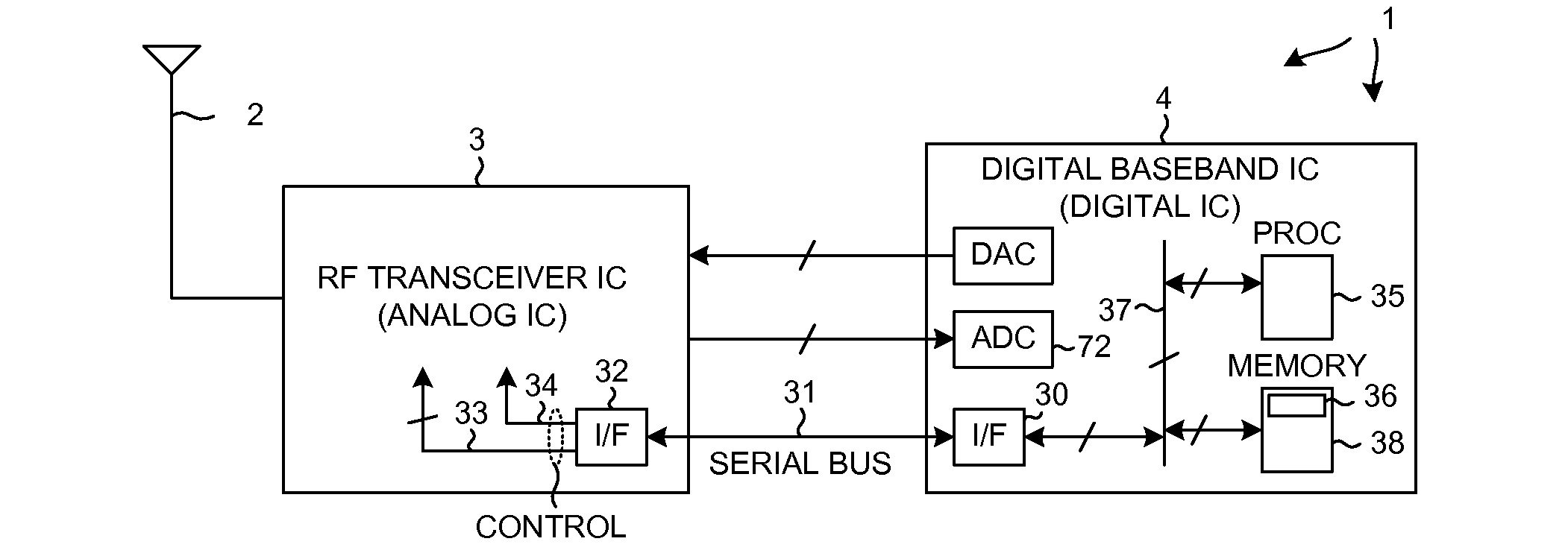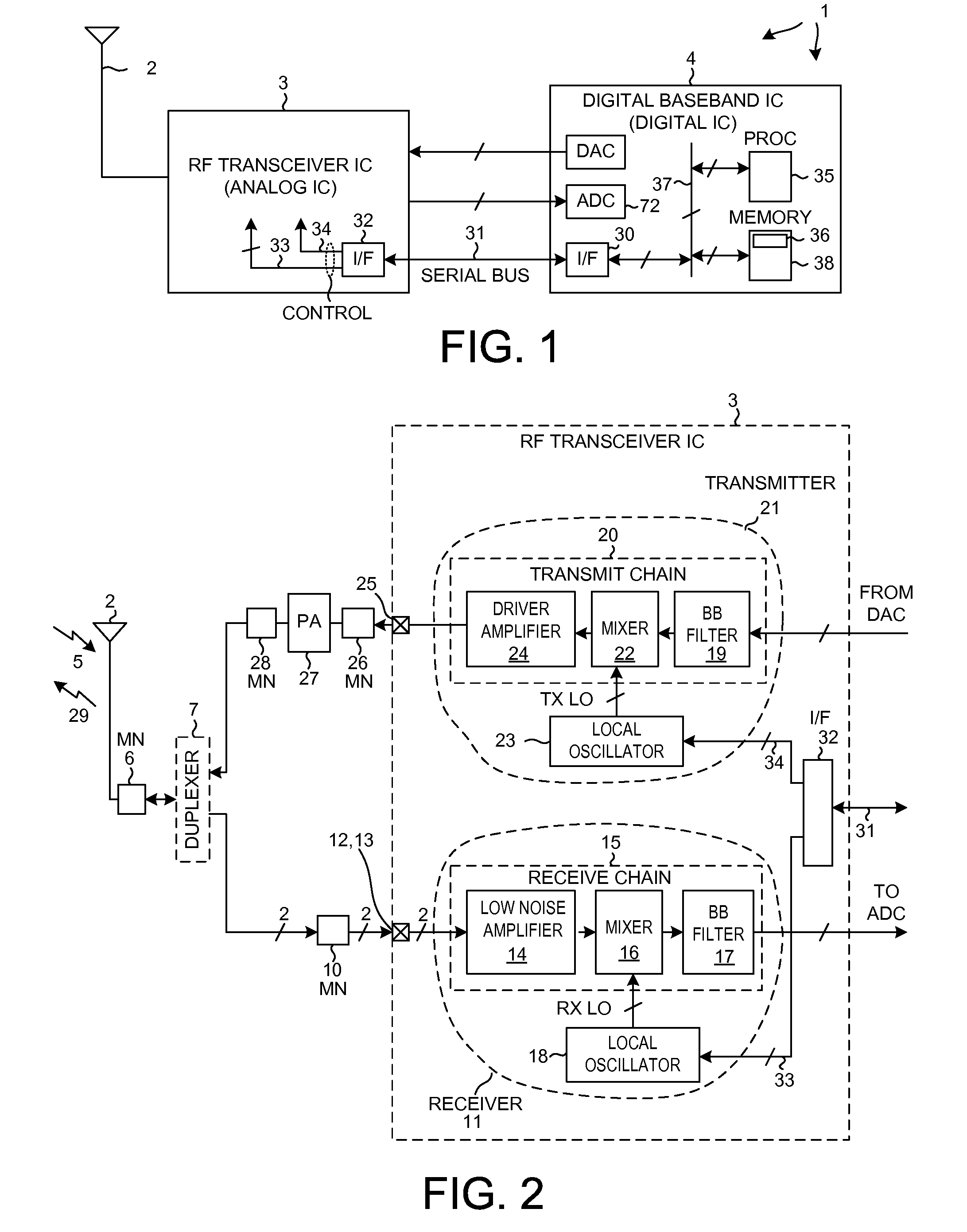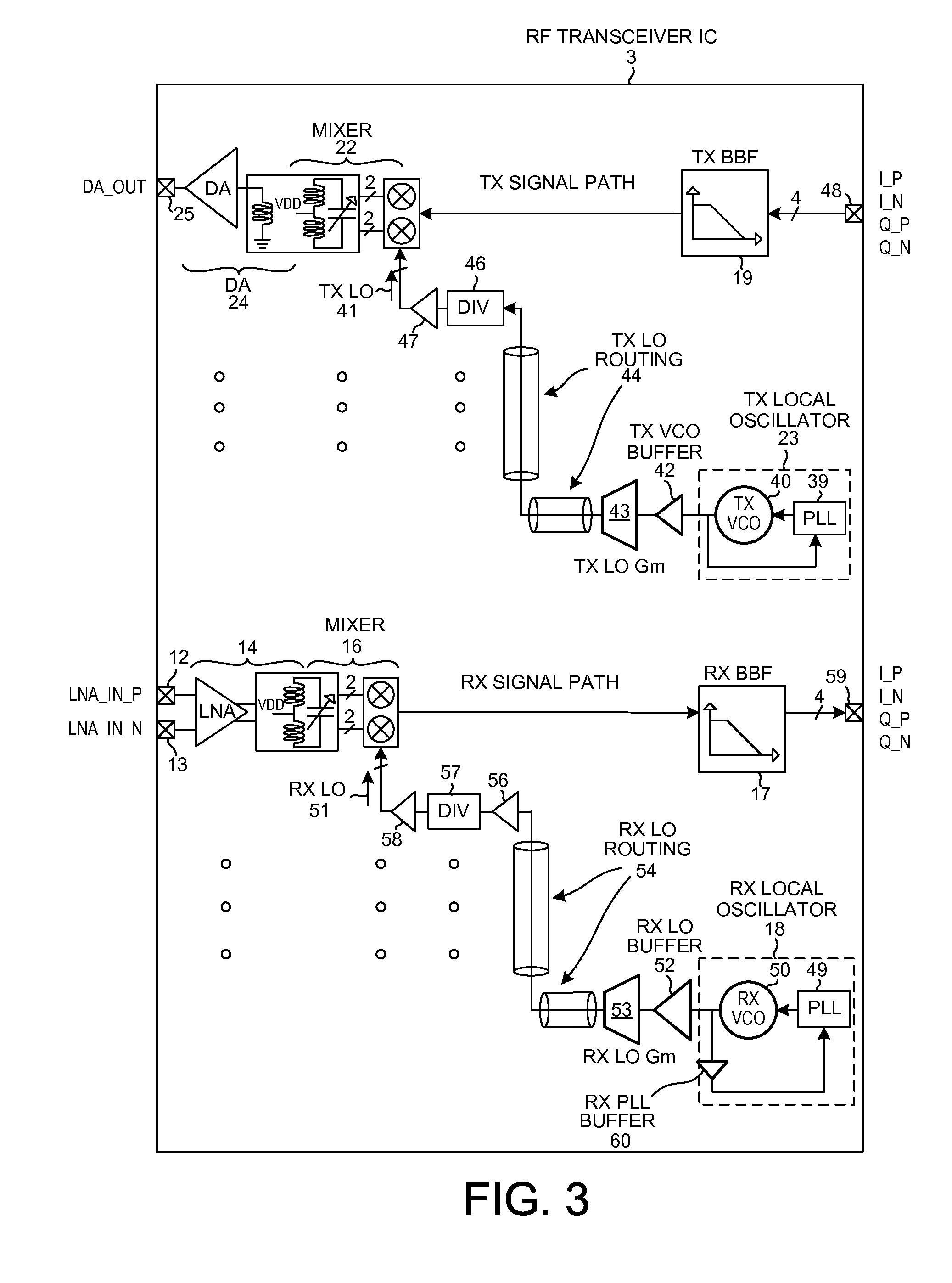Reducing power consumption by taking advantage of superior in-circuit duplexer performance
a technology of in-circuit duplexer and power consumption reduction, which is applied in the direction of power management, sustainable buildings, high-level techniques, etc., can solve the problem of energy in the receive band
- Summary
- Abstract
- Description
- Claims
- Application Information
AI Technical Summary
Benefits of technology
Problems solved by technology
Method used
Image
Examples
Embodiment Construction
FIG. 1 is a diagram of a mobile communication device 1 such as, for example, a cellular telephone handset. Device 1 includes (among other parts not illustrated) an antenna 2 usable for receiving and transmitting cellular telephone communications, an Radio Frequency (RF) RF transceiver integrated circuit 3, and a digital baseband processor integrated circuit 4. In some examples, the transceiver circuitry and the digital baseband circuitry is implemented on the same integrated circuit, but a two integrated circuit implementation is set forth here for illustration purposes.
FIG. 2 is a more detailed diagram of the transceiver and antenna parts of the cellular telephone of FIG. 1. In one very simplified explanation of the operation of the cellular telephone, if the cellular telephone of FIG. 1 is being used to receive information as part of a cellular telephone call, then an incoming transmission 5 is received on antenna 2. The incoming signal passes through a matching network 6, a duple...
PUM
 Login to View More
Login to View More Abstract
Description
Claims
Application Information
 Login to View More
Login to View More - R&D
- Intellectual Property
- Life Sciences
- Materials
- Tech Scout
- Unparalleled Data Quality
- Higher Quality Content
- 60% Fewer Hallucinations
Browse by: Latest US Patents, China's latest patents, Technical Efficacy Thesaurus, Application Domain, Technology Topic, Popular Technical Reports.
© 2025 PatSnap. All rights reserved.Legal|Privacy policy|Modern Slavery Act Transparency Statement|Sitemap|About US| Contact US: help@patsnap.com



